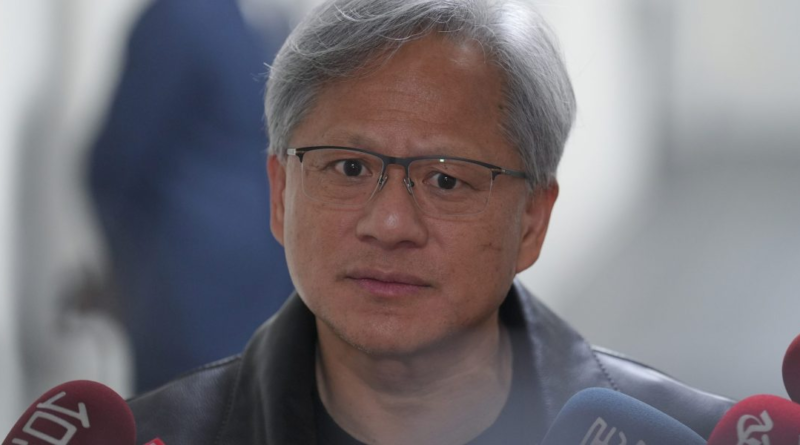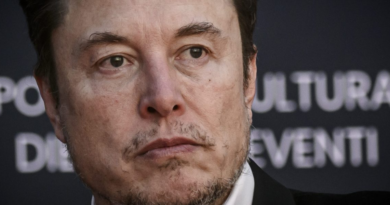$2.2 trillion Nvidia is colliding with Taiwan's biggest earthquake in 25 years as its key chip supplier grapples with factory fallout
The 7.4-magnitude earthquake that hit Taiwan Wednesday morning could rock AI darling Nvidia after its main chipmaker Taiwan Semiconductor Manufacturing Company (TSMC) temporarily halted production and evacuated its factories.
TSMC said it moved staff from some production centers after its science parks in Hsinchu, Longtan, Zhunan, and Taichung experienced earthquake shocks with a magnitude up to 5.0. Initial inspections of TSMC’s construction sites were normal, but it said a “small number” of tools were damaged in certain production areas that partially impacted operations. Fabrication plant tool recovery was at over 70% within 10 hours of the quake, and none of TSMC’s critical tools were impacted, the company reported. The chip manufacturer’s local rival United Microelectronics Corporation (UMC) also took measures to evacuate certain facilities and halt some operations.
“TSMC’s safety systems are operating normally,” the company said in a statement to Fortune. “Preventative measures to ensure employee safety and well-being were initiated at that time according to procedure, and some fabs were evacuated. All personnel are safe and returned to their workplace shortly after the incident.”
UMC did not respond to Fortune’s request for comment. An Nvidia spokesperson told Fortune the company is monitoring the situation and ensuring employee safety, but has not released an official statement.
Nvidia is TSMC’s second-largest client, behind only Apple, and relies on the manufacturer to produce the semiconductor chips it designs for chip systems that power AI software and advanced graphics processing units. Last year, Nvidia paid the chipmaker $7.73 billion for its services, accounting for 11% of TSMC’s revenue, according to financial analyst Dan Nystedt. With a market capitalization of $2.2 trillion, Nvidia is the third-largest company in the U.S., effectively driving the AI revolution.
TSMC and UMC shares faltered about 1.3% and 1%, respectively, early Wednesday, while Nvidia shares have remained steady.
Industry aftershocks
Wednesday’s earthquake in Taiwan was the country’s largest in 25 years, resulting in over 100 buildings being damaged. There are nine people confirmed dead and over 960 injured. While the earthquake hit the island’s east coast—with many of TSMC’s factories located on the west coast—there were over 29 aftershocks across the island with a magnitude over 4.0, capable of moderate damage.
Semiconductor chips are notorious for their finicky electrical properties and are more sensitive to light, dust, and particle contaminants. They require clean rooms with filtered air—an environment comparable to a surgical table.
While TSMC reported normal operations and has not disclosed the results of an ongoing inspection of facilities, analysts warn it will take time for the company to bounce back.
“Mitigating the impacts of the earthquake necessitates careful measures and time to restore production and uphold quality standards, presenting additional implications and obstacles,” consultancy Isaiah Research said in a note, Reuters reported.
Costs of doing business in Taiwan
Taiwan experiences about 2,200 earthquakes a year, according to the Central Weather Administration Seismological Center, and TSMC has taken precautions over the years to mitigate natural disaster-induced damages. After a 6.6-magnitude earthquake hit its Tainan fabrication plants in February 2016, TSMC added additional ceiling bracings and stoppers on storage shelves to prevent sliding.
Nvidia’s centralized operations in Taiwan is the company’s primary weakness, experts argue. Its nearly sole reliance on TSMC makes it vulnerable to any supply-chain or production hitches the manufacturer encounters. While there are a handful of other chip manufacturers, TSMC has the edge over competitors with its ability to stack and package chips for heavy data processing.
Taiwan is under increased military threat from China, which claims Taiwan as a part of its republic despite Taiwan’s independence movement, and this turmoil presents another threat to the security of TSMC’s operations.
Nvidia founder and CEO Jensen Huang reiterated Taiwan’s centralized role in chipmaking amid concerns of political conflict at a technology event in Taipei last June. Nvidia is currently building plants in the U.S., and TSMC is preparing to begin operations at a plant in Arizona, though its opening has been delayed.
“When I was here, in all of our supply-chain discussions, we feel perfectly safe,” he said.




